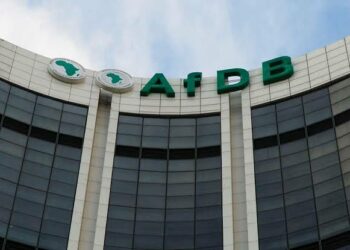The provision of effective extension service delivery to farmers remains one of the key factors that can enhance the performance of the agricultural sector. Extension services as a means of delivering information, education, and technology, especially new breakthroughs in agriculture, to farmers can help them improve their productivity, income, and livelihoods.
Agricultural extension in Nigeria, no doubt has a long history, dating back to the colonial era, when the British administration established the Department of Agriculture in 1910 to introduce new crops and farming methods to the local farmers.
Since then, various extension programme and projects have been implemented by the federal, state, and local governments, as well as by non-governmental organizations (NGOs), international agencies, the private sector, and farmer groups.
Some of the notable extension initiatives in Nigeria include the Farm Settlement Scheme (1959–1966), the National Accelerated Food Production Programme (NAFPP, 1972–1976), Operation Feed the Nation (OFN, 1976–1980), the Agricultural Development Projects (ADPs, 1975–present), the Training and Visit (T&V) System (1979–1999), the National Agricultural Extension and Research Liaison Services (NAERLS, 1977–present), and the Agricultural Extension Transformation Agenda (AETA, 2011–2015).
Despite these efforts, the Nigerian extension system remains weak and ineffective in meeting the needs and aspirations of farmers.
According to the World Wide Extension Study, Nigeria has about 13,000 public extension agents, serving an estimated 100 million farmers, with a ratio of one extension agent to about 7,692 farmers, which is far below the recommended ratio of one to 400 farmers.
Moreover, the extension agents are poorly trained, motivated, and equipped and often lack the necessary skills, knowledge, and resources to deliver quality extension services. Furthermore, the extension system is fragmented and uncoordinated, with multiple actors and institutions operating in isolation or in competition without a clear policy framework, strategy, or mechanism for collaboration and integration.
The extension system in Nigeria has also been plagued by various problems, such as inadequate funding, low staff capacity, poor coordination, weak linkages with research and farmers, and a lack of farmer participation and empowerment.
On the other hand, inadequate infrastructure, aging and insufficient extension agents, low adoption of digital technologies, and policy inconsistency have continued to limit the impact of extension on agricultural development and the well-being of rural communities.
Meanwhile, extension service delivery to farmers has been proven in many parts of the world to increase their access to and adoption of improved agricultural technologies and practices that can enhance their yields, quality, and profitability.
Their knowledge and skills on crop and livestock management, pest and disease control, climate-smart agriculture, post-harvest handling, marketing, and value addition can also be improved by the extension service delivery.
Additionally, linking farmers to input suppliers, financial institutions, processors, traders, and other market actors that can facilitate their access to inputs, credit, insurance, and market opportunities can be enhanced through the service. Extension services are equally necessary to empower farmers to participate in decision-making, collective action, and advocacy on issues affecting their livelihoods and the agricultural sector.
Through the service, farmers can enhance their resilience to shocks and stresses such as drought, flood, conflict, and COVID-19 by providing them with timely and relevant information and support.
Therefore, there is a need to invest in and strengthen the extension system in Nigeria to ensure that farmers can benefit from the potential of agricultural innovation and transformation.
According to the Federal Ministry of Agriculture and Food Security, the newly launched nation’s first harmonized extension manual and national agricultural extension policy are an effort to improve the delivery of agricultural extension services to Nigerian farmers.
The manual, according to the minister of state for agriculture and food security, Senator Aliyu Sabi Abdullahi, focuses on employing the right extension techniques to efficiently disseminate and deploy agricultural innovations and technologies to end-users using appropriate extension methods.
Abdullahi, who spoke at the opening of the 6th Africa-Wide Agricultural Extension Week in Abuja, last week noted that the new manual will be of great benefit to extension administrators, subject matter specialists, and extension agents who will deliver service to farmers along agricultural value chains.
He said the National Extension Agricultural Extension Policy aims to maximize resource utilization to support sustainable agriculture and the nation’s socioeconomic development by offering all stakeholders, including youth, women, and individuals with special needs, a pragmatic, effective, and efficient demand-driven plurastic, ICT-enabled, and market-oriented extension service.
The theme of this year’s African Extension Week is “Harnessing Agricultural Extension and Advisory Services in Scaling Regenerative Agriculture and Nature-Based Solutions for Food System Transformation in Africa”.
The minister noted that the federal government has recognized the huge potential of agriculture as a key sector in driving the nation’s economy and as a tool to fight unemployment, hunger, and poverty, and has sought to restructure the economy from unnecessary borrowing to finance government program activities as well as create jobs and achieve economic growth.
“Our resolve is to develop the agricultural sector towards the attainment of the objectives of the SDGs, especially those of zero hunger, and to improve agriculture and rural productivity. Nigeria’s current plan is to achieve self-sufficiency in food production and reduce dependency on food imports,” he said.





